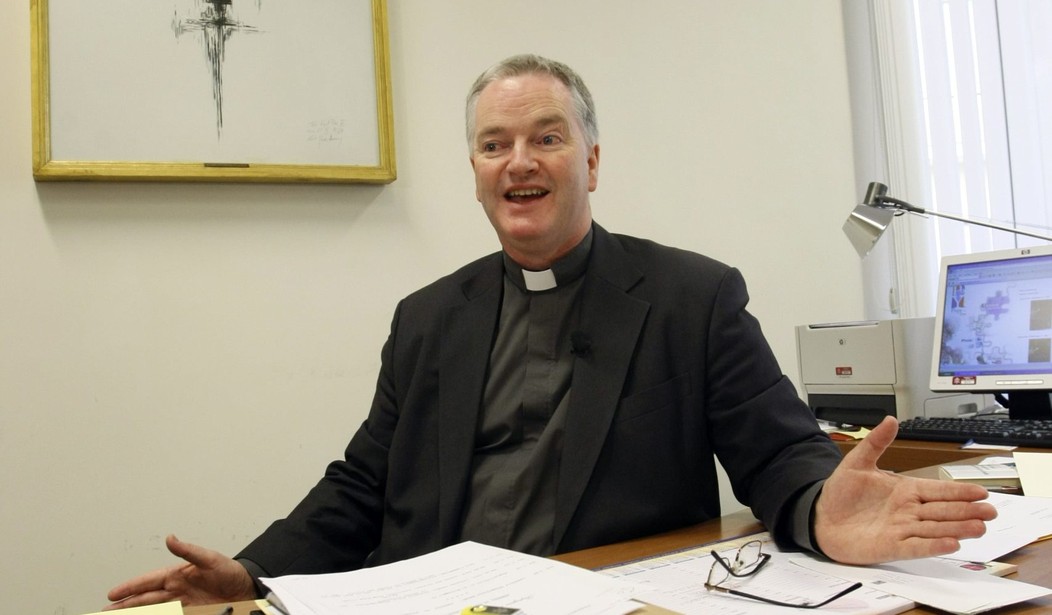The South by Southwest (SXSW) technology conference has hosted a great deal of diverse people, but it might be surprising to find a grey-haired priest among their ranks. Bishop Paul Tighe was the first Vatican representative to attend the conference, and his remarks about why Pope Francis has a social media presence proved particularly interesting.
Tighe, who serves as adjunct secretary for the Pontifical Council for Culture, led a panel on “Compassionate Disruption.”
“The actual theme we wanted to look at at our conversation was around this idea of compassionate disruption, digital reality has caused people to rethink things they are doing,” Tighe told NPR. “And for church, we have to rethink what we’re doing. But we also wanted to be very clear that what we have to say as a church is also in its own way disruptive.”
The Vatican representative noted that social media is “changing the way people form community.” He noted that young people in Austin, Tex. — where the conference took place — are “brimful of ideas, with new things to pitch and new things to sell,” but that also “means a lot of people are under a lot of stress. They’re having to perform. They’re having to deliver. They’re having to earn attention.”
That’s where the basic Christian message becomes important. “From a gospel perspective, one thing we wanted to say is look, God loves everybody, irrespective of whether he or she is successful or not successful,” Tighe explained. “It’s not something that we earn. And that the disruption, as we would see it, is essentially coming from the freedom of God’s love, the fact that this is a gift to all of us and makes us think differently about how we live with one another.”
This is an exceedingly important message in today’s world, where the combination of new technological opportunities and a belief that anyone can be successful drives millennials to work very hard to achieve in a competitive sphere like the tech industry. While Christianity values achievements and knowledge, the fundamental message of the gospel is that God’s grace is a free gift, not earned by sinful men and women.
Reaching out to people with this positive message on social media might be enough to justify the pope’s Internet presence, but Tighe also explained how the Vatican can use the Internet to decrease negativity — the kind of “trolling” that far too often takes over social media.
“What we’ve tried to do is to encourage people to use the potential of social media to build relationships, to be encouraging, to be people who support others, recognizing that at times that’s going to be countercultural, but also recognizing that if we don’t do it, then we’re losing something that has enormous potential,” the bishop said.
Tighe noted that when Pope Benedict XVI went on Twitter, “we experienced a lot of the negativity.” But “if we drop out of that arena, then in a sense, the haters have won. So one of the things we’ve said is, you know, let’s try and stay there and affirm the positive.”
The bishop said that is “what I would want to say to all people, whether they’re people of faith or not. When you’re online, be there, but don’t let it dictate your discourse. Say what you have to say and say it well and say it positively. And don’t let your message be defined by those who are being negative.”
Maybe the Vatican needs to attend more of these conferences.









Join the conversation as a VIP Member